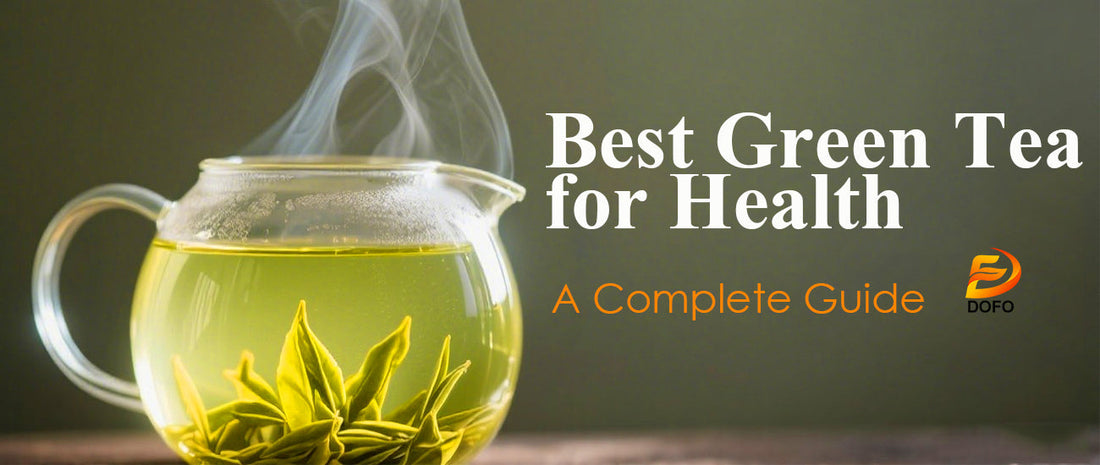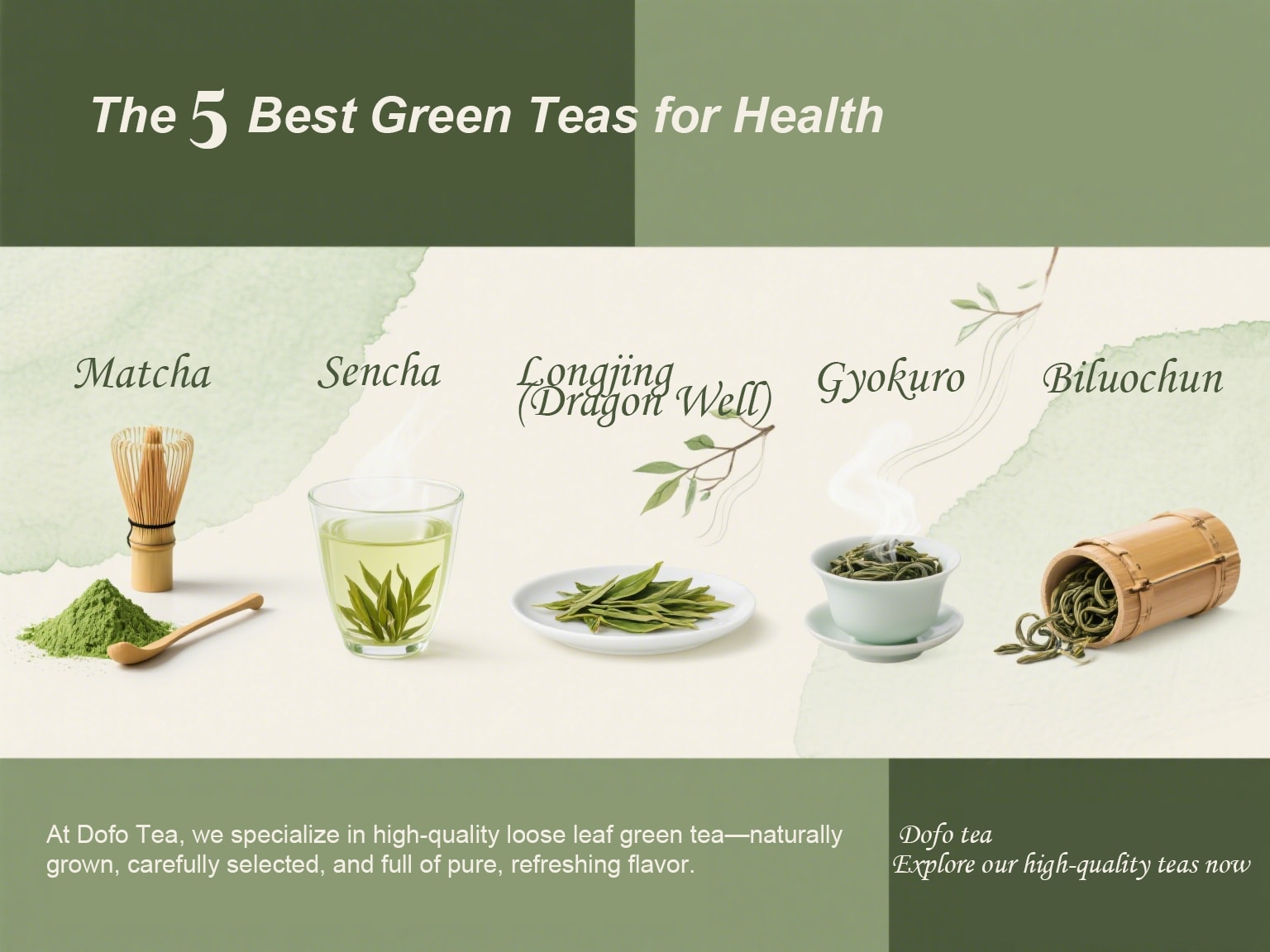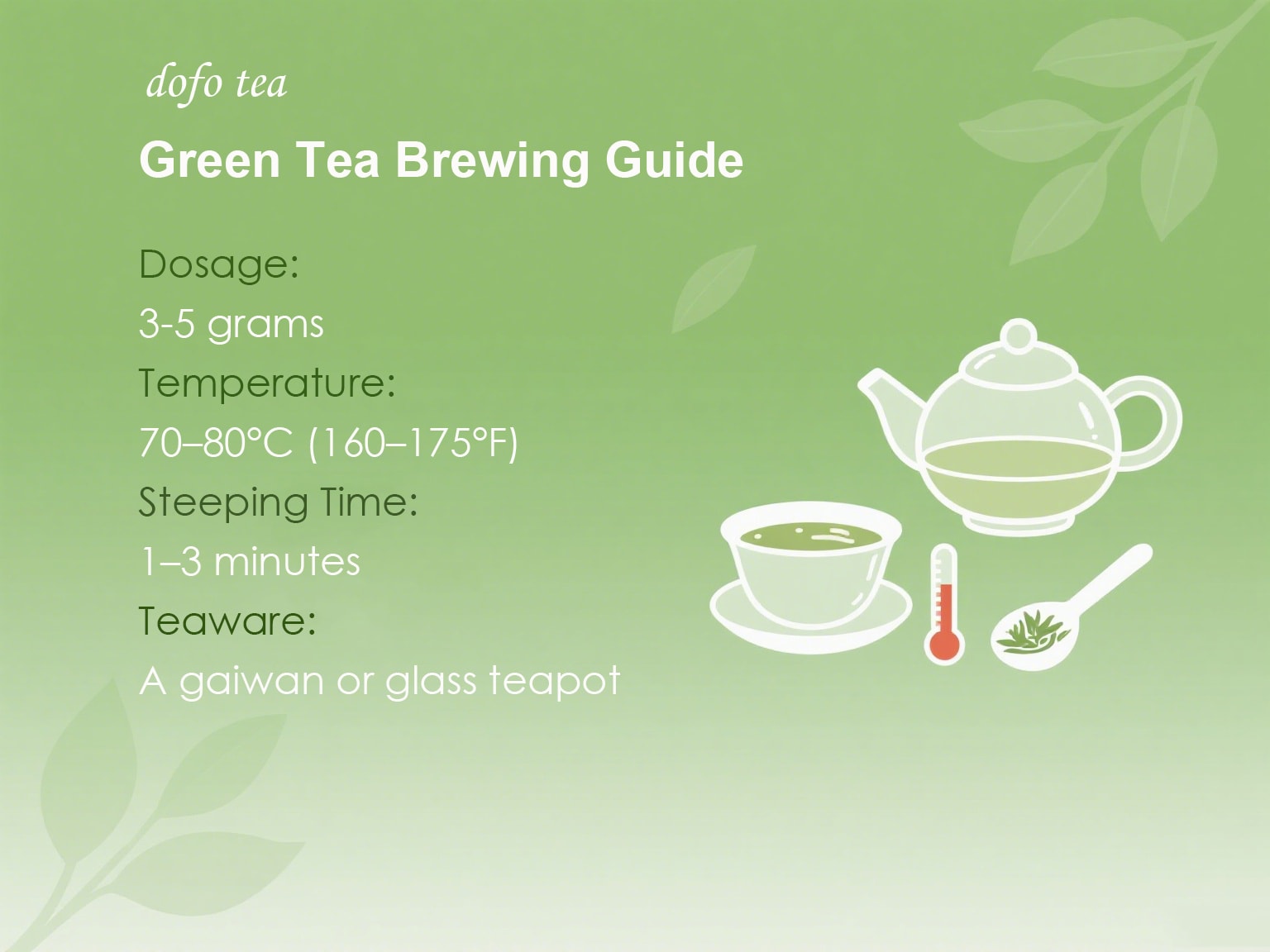
Best Green Tea for Health – A Complete Guide
HHShare
Author:Nationally certified senior tea appraiser Xu Jiahua
Green tea has been valued for centuries for both its flavor and health benefits. Modern research confirms its power to boost metabolism and support heart, brain, and gut health.
But with so many types available, which green tea is best for your health? This guide will help you choose.
Why Green Tea Is Considered One of the Healthiest Tea?
Rich in EGCG
Green tea is rich in catechins, especially epigallocatechin gallate (EGCG), which is a powerful antioxidant.
PubMed Central(The National Library of Medicine) published an article mentioning that EGCG offers anti-inflammatory, antioxidant, anti-fibrotic, and tissue-protective effects by influencing cell signaling and transcription, with potential benefits for heart health.
Boosts Metabolism
Analysis of Wikipedia "Weight Management" shows that green tea can stimulate calorie consumption, promote fat oxidation, and enhance satiety, which helps maintain weight.
Enhances Brain Function
Thanks to a small amount of caffeine and the amino acid L-theanine, green tea improves focus, alertness, and memory without the jittery effects of coffee.
Anti-inflammatory Benefits
The polyphenols in green tea have strong anti-inflammatory properties, which may help reduce the risk of chronic diseases like arthritis and certain cancers.
Supports Longevity
"Green Tea: Current Knowledge and Issues" (published in PubMed Central (The National Library of Medicine)):
It clearly demonstrates that green tea has antioxidant, anti-inflammatory, anti-cancer, and anti-aging effects, and addresses its overall regulatory significance on the immune system, metabolic health, and aging mechanisms.
Green tea and EGCG can inhibit the formation of amyloid beta during aging, potentially helping to alleviate cognitive decline associated with amyloid accumulation.
How to Choose the Best Green Tea
Origin
High-quality green tea often comes from:
- Japan – known for Matcha, Sencha, and Gyokuro
- China – home to Longjing (Dragon Well), Biluochun, and Huangshan Maofeng
These regions offer ideal climates, traditional cultivation, and minimal pesticide use (especially in organic varieties).
Processing Method
Green tea processed in different ways has different focuses. You can choose your favorite green tea based on your personal taste preferences and the health benefits you care about.
|
Processing method |
Representative tea |
Advantages |
Taste |
|
Steamed |
Matcha, Sencha, Gyokuro |
High in antioxidants (EGCG) |
Fresh, grassy, seaweed |
|
Pan-fired |
Longjing, Biluochun |
Aromatic, layered flavor |
Nutty, floral, mellow |
|
Baked |
Anji White Tea, Enshi Yulu |
Gentle, smooth |
Light, sweet, clean |
Form: Loose Leaf vs Tea Bags
Loose leaf green tea uses whole leaves, offering more flavor, antioxidants, and health benefits. Tea bags often contain low-grade dust or fannings, which brew faster but lose taste and nutrients.For better quality, it is better to choose loose leaf tea.
Freshness and Storage
Green tea is sensitive to light, air, and moisture. Always choose tea in sealed, opaque packaging and store in a cool, dry place.
The 5 Best Green Teas for Health

1. Matcha
This powdered green tea offers the most antioxidants per gram. Since you consume the whole leaf, Matcha provides a concentrated source of EGCG, chlorophyll, and fiber. It’s ideal for detox, mental clarity, and energy.
2. Sencha
A classic steamed green tea from Japan. Sencha is rich in catechins and has a slightly grassy, refreshing taste. It supports daily wellness and is a great choice for those seeking weight control and heart health.
3. Longjing (Dragon Well)
This Chinese green tea is gently pan-fired, giving it a nutty, toasty flavor. Longjing is soothing for the stomach and known for promoting digestion and calming the nervous system.
4. Gyokuro
Gyokuro is shade-grown for up to 3 weeks before harvest, which increases its theanine and chlorophyll content. It’s deeply umami, smooth, and ideal for focus and stress relief.
5. Biluochun
A delicately rolled tea from China’s Jiangsu province, Biluochun is aromatic, floral, and packed with antioxidants. It’s gentle on the stomach and supports gut and cardiovascular health.
Recommended green tea: options for different health needs
Looking for the best green tea for your health? Different types of tea are suitable for different health concerns. Here are a few green tea recommendations to match your wellness goals:
The best green tea for prostate health
Matcha and Japanese Sencha are rich in EGCG (epigallocatechin gallate), one of the most powerful antioxidants found in nature. Research has shown that EGCG may help reduce inflammation and support prostate cell health.
The best green tea for gut health
For sensitive digestion, Genmaicha and Peppermint Green Tea are great choices. Genmaicha is low in caffeine and gentle on the stomach, while peppermint aids digestion and reduces bloating. Perfect after meals or for daily gut health.
The best green tea for heart health
Sencha and Gyokuro contain antioxidants that may lower cholesterol and improve blood flow. Regular intake supports cardiovascular health and reduces heart disease risk.
The best green tea for stomach health
Biluochun and Dragon Well (Longjing) are smooth, low-caffeine teas that soothe the stomach and reduce acid buildup—great choices for those with sensitive stomachs.
How to Brew Green Tea for Maximum Green Health Benefits

Use the right water temperature: Steep most green teas at 70–80°C (160–175°F) to preserve antioxidants. Hotter water can destroy EGCG and cause bitterness.
Steep time: 1–3 minutes is usually ideal. Over-steeping releases more tannins, which may irritate sensitive stomachs.
Use quality tools: A gaiwan or glass teapot works best for loose leaf.Brewing tea with a gaiwan brings out more fragrance, while glass teaware lets you appreciate the unfolding tea leaves, making the process more enjoyable and visually appealing.
You can also learn more in our guide: How to Make Loose Leaf Tea.
Frequently asked questions
What is the best green tea to drink every morning?
Sencha is a refreshing, low-caffeine tea that offers gentle stimulation without a crash. Matcha is also great if you want a more energizing start.
What green tea has the highest antioxidants?
Matcha wins this category. You consume the entire leaf, so it delivers the most EGCG and chlorophyll per gram.
What time of day is best to drink green tea?
Morning or early afternoon is ideal. Drinking green tea later in the day may disrupt sleep due to its caffeine content.
What are the best green tea bags for health?
Look for organic, whole-leaf tea bags from brands like Pukka, Numi, or Traditional Medicinals. Avoid artificial flavors or tea dust.
Looking for Quality Green Tea,Try Dofo Tea
At Dofo Tea, we specialize in high-quality loose leaf green tea—naturally grown, carefully selected, and full of pure, refreshing flavor. Taste the difference in every cup. No gimmicks – just real tea from real sources. Explore our high-quality teas now.









